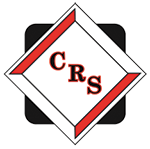Outsourcing data registry abstraction services can provide a number of benefits to healthcare organizations, including improved data accuracy, increased efficiency, and reduced costs. But what is the return on investment (ROI) of outsourcing these services?
One way to calculate the ROI of outsourcing data registry abstraction services is to compare the cost of outsourcing the service to the cost of doing it in-house. By outsourcing the service, healthcare organizations can save on the cost of hiring and training additional staff to do the work in-house. This can include savings on salary and benefits, as well as the cost of training and onboarding new employees.
In addition to these direct cost savings, outsourcing data registry abstraction services can also lead to indirect cost savings, such as improved data accuracy and increased efficiency. By outsourcing these services to trained professionals who are focused solely on data abstraction, there is a lower risk of errors and omissions, which can lead to more accurate diagnoses and treatment plans. This, in turn, can lead to improved patient outcomes and potentially lower healthcare costs.
Overall, the ROI of outsourcing data registry abstraction services will depend on the specific needs and circumstances of the healthcare organization. By carefully considering the costs and benefits of outsourcing, organizations can make an informed decision about whether it is the right choice for their needs.


